Set decades before John Wick, The Continental follows Winston Scott in the 1970s. The series shows his origins as both a street-wise criminal and the eventual manager of the New York branch of The Continental Hotel. The series expands upon the world of John Wick, including Winston’s friendship with Charon, while also incorporating elements of the real 1970s.
The Continental features a star-studded cast led by Colin Woodell, Mel Gibson, Katie McGrath, Mishel Prada, Ben Robson, Hubert Point-Du Jour, and Nhung Kate. Albert Hughes directed the first and third episodes of the limited series, with Charlotte Brändström stepping in as director on the second. Hughes also serves as an executive producer, along with returning John Wick producers Basil Iwanyk and Erica Lee.
Screen Rant spoke with Albert Hughes about the final episode of The Continental. He revealed which character he still wants to explore further and why KD’s story is the heart of the series. Hughes also explained how it was an improvised moment that solidified the bond between Winston and Charon, as well as the questions he still has about the John Wick world and the future of these characters.
Albert Hughes Talks The Continental Episode 3
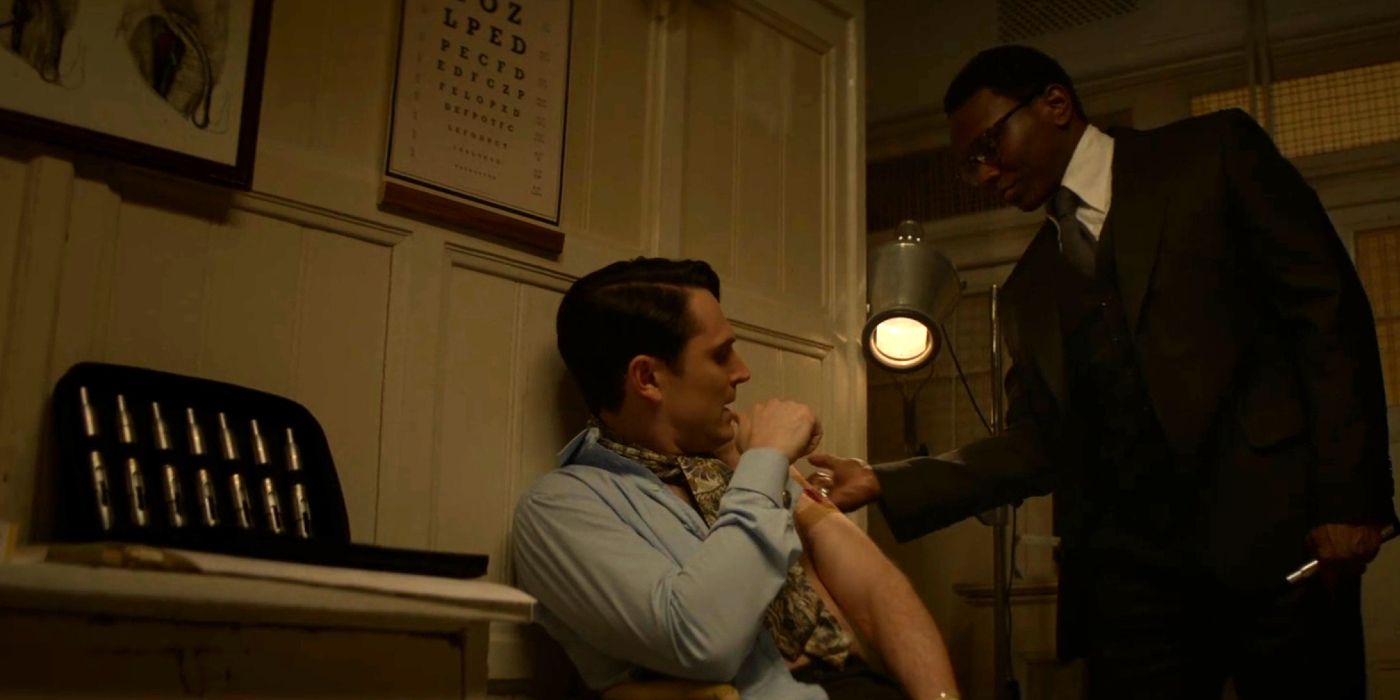
Screen Rant: This show is so much fun. That third episode is so action-packed. I loved it.
Albert Hughes: Listen, I had to watch an episode five times to understand what was going on because the script was still wet when we went into production on it. Right? The others had been settled. I’d had time to absorb all this stuff, but the way that the third episode works is like scene on top of scene on top of scene on top of scene. So to get a sense of it, I’ve never had to do that before, watch something five times to get a sense of how to mix it, how to edit better, all that stuff.
Wow. That’s crazy. I was actually going to ask you about that because the action scenes are so interwoven together while still keeping it a character-driven story. How did you balance that?
Albert Hughes: Well, I mean I have to give a lot of credit to our crew, to Kirk Ward, our writer and showrunner, to Larnell Stovall, the action director and fight coordinator. We brought in some new people, a DP, an AD. We were pretty well oiled by the time we got to three, but once you bring in fresh blood with our fantastic Hungarian crew, they were working at this kind of elevated space where we were all helping each other because it can get confusing when you’re inside those halls forever, shooting action or character moments, and they all stepped up.
And the amazing thing about it is in 32 years of working, it’s a dirty little secret, it shouldn’t be a dirty little secret that everybody does reshoots and pickup shots for any project. That’s just a normal thing. I had not one for episode three. I did have to do stuff for episode one, episode two, but episode two, not even an insert shot was redone in post or after we wrapped. It was everything we captured. Yes, some stuff hit the editing room floor like normal, like certain scenes just didn’t need to be there, but not one reshoot or pickup.
Wow, that’s crazy!
Albert Hughes: Yeah. I’ve never seen it, but again, it speaks to the crew and how well-prepared that crew was. As much as I want to prepare, and I have prepared, if they are not ready, it won’t work.
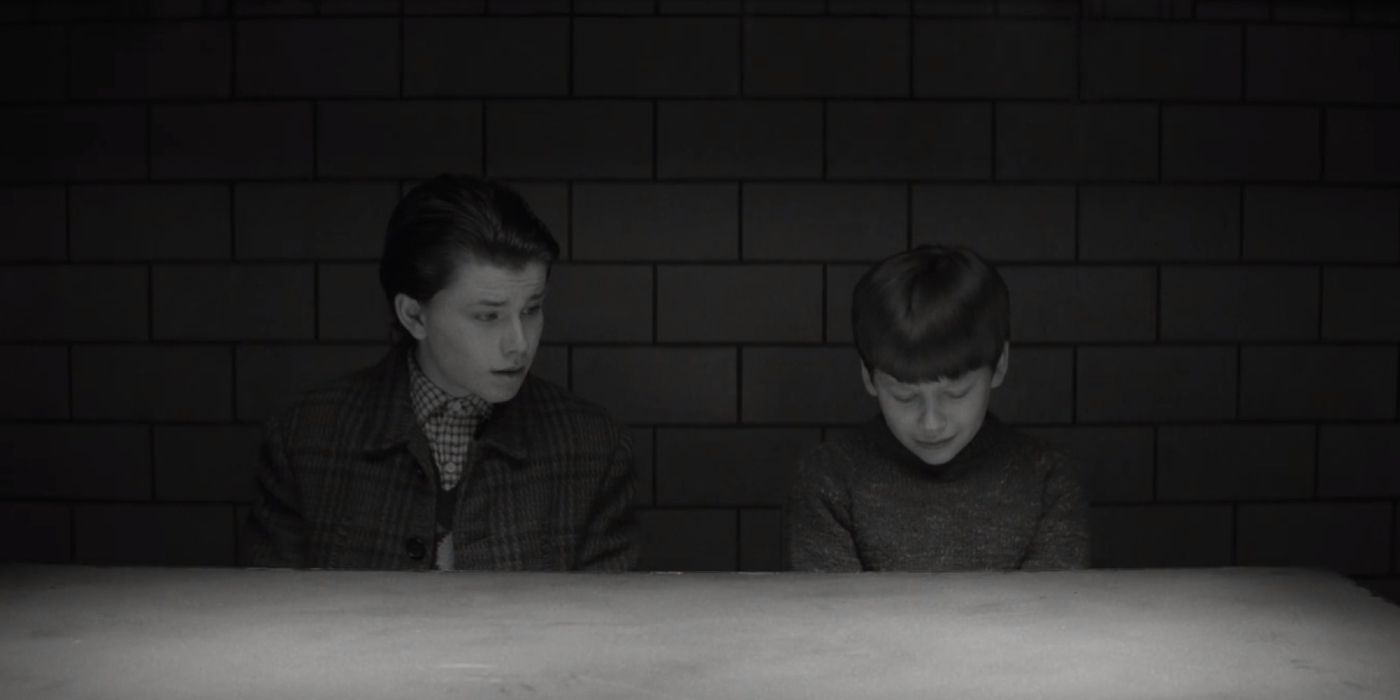
Yeah. And then were you able to speak with Chad Stahelski before or during this process? And if so, did he share any wisdom with you?
Albert Hughes: Yeah. Yes and yes. He spoke with me before I got started and he was very sweet and very generous and like, “Do your thing, what you’re into. Here’s my influences. I’m into Hong Kong cinema, Bob Fosse movies, dance/musical movies, all kinds of stuff.” He was rattling up with, “What are you into?” So I had to go have a think.
And then when I was shooting, I think episode three, he called me while I was shooting and was giving me advice on how to handle stuff with edits with Lionsgate, really good stuff because he’d been working there for years and he said, “Oh, I’ll share with you, I have a four-hour cut of John Wick 4 if you want it. If you want to show me footage, you can show me footage.” So he was very open. I was thinking to myself, four hours?
I did see a long cut of John Wick 4, but I didn’t see the four hour. I think I saw something close to three hours or above three hours. It was a little different than the one they released, and the one I saw didn’t have the Arc De Triomphe in yet, it was just all blue screen in a parking lot.
Yeah. And then the final moments of The Continental really feel like the Winston we know from the movies. Can you talk about building to that final reveal?
Albert Hughes: Yeah. I think that Colin Woodell and Ayo Adegun, who played Winston and Charon, the younger versions, they were very smart about watching a movie and coming to me. And I’m not big on long discussions about character, I’m not a micromanager, but we would have this fine balance of what they’re supposed to be if you reverse engineer their characters to being younger, and not imitating the older actors, but having an impression of the swag and the attitude more than anything, and what the younger person is more naive and doesn’t know their full power yet.
And there was something that happened on the set on the last episode where they shook hands and embraced in a control room. And I remember telling them, because it was written one way, it was like, we just exit it the scene. I said, “Well, can you guys shake hands or embrace?” And then I started coming up with a camera angle for it, and I saw it happen and I go, “Oh, shit, I didn’t know this would be that powerful,” because it’s the beginning of their bond. The bomb was formed through all this trauma of episode one and two and three, but that moment wasn’t written.
There was a moment later that you know about when they’re at the bar that’s more the Avengers moment, I call it, when the Avengers come together at Shawarma. And I thought that was going to be the moment that the audience would see that relationship bond, but it was that visual of seeing the hug where I go, “Wow, there it is, right there.” And that wasn’t written. That’s just something that we all came up with on the day.
I love that. And then can you talk a little bit about developing The Adjudicator to make sure that she stands out from the one we met in the movie?
Albert Hughes: Well, I was obsessed with that character, as I was obsessed with the mail room attendant. I was obsessed with The Adjudicator’s henchman. So I start collecting details, not knowing yet Katie McGrath, who would do a fantastic job with the role. I didn’t know who was cast yet. The mask was originally written as a Hungarian smile mask and a Hungarian smile mask is just a normal mask with a smile painted on it, and it’s for psychological mental health reasons. You look at yourself in a mirror smiling and you feel better. I don’t know what that’s about.
So I adjusted that into a porcelain mask with geisha lips and kabuki lips kind of inverted. And then it was all about the wardrobe, the purple, she constantly wears purple. That’s a nod to my mother and some other things. And then the makeup and the hair started getting involved and costume and wardrobe. And I had some concept drawings, but I was very fascinated by her because of the one in film three, John Wick 3, I thought she did a fantastic job and she was so strong and mysterious.
And the interesting thing about that character is that they just lay down these laws, and it’s mostly on men, it’s these women coming in adjudicating. It’s either death or slashes or punishment of some sort or rules being laid down, and they’re kind of condescending, all these powerful assassins in this world. And there’s something dynamic about seeing a woman do that in this world, which by the way, the world is very gender neutral in a way. It’s like men and women are equally as powerful and you can get killed no matter who you are, man or woman.
And that’s one thing I do appreciate about the world, that they don’t have that, for lack of a better word, kind of a sexist attitude towards action. All is fair in love and war, as they say, in the John Wick universe.
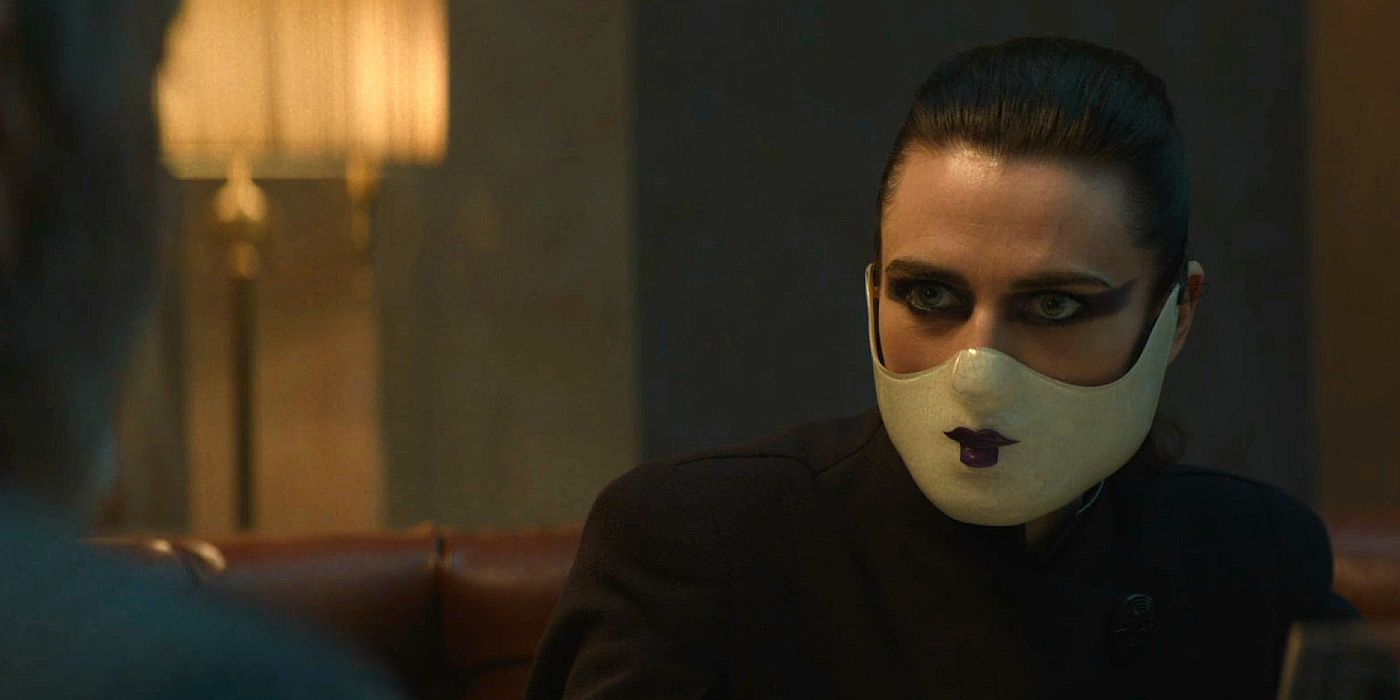
Would you have liked to explore that character further?
Albert Hughes: She’s one, to this day, still I’m fascinated by both of them. The one in the film series, which we never saw her demise or her character arc come to an end. You never saw her in 4, so I was always perked up like, because I disliked her so much in a good way, I wanted to see her get her comeuppance, but it never happened, which is kind of cool in a way.
Yeah, I would say both of those characters, whether it’s them or a different iteration of them at a different time, I’m fascinated by just because they’re so mysterious, there’s a lot of mysterious characters in the John Wick universe, but none so, to me, as mysterious as them. How did they come to be? How did they get trained? All that stuff.
I love that. So I was curious if there were other areas of the John Wick lore you’d like to explore. It sounds like The Adjudicators for sure, but are there any other areas?
Albert Hughes: No, I love what I did with this cast and this crew and this story. And it can go further. I don’t know if I’ll be doing it, that’s still up for debate, but I think moving into the early 80s and the sound and visual of that, and I think there is a moment that could be explored with Winston, what’s that expression? Absolute power corrupts absolutely. Does he become what Cormac became and has to learn a hard lesson that you can’t rule that place like that?
So these are all my fanboy questions that I talk about with Kirk Ward, the writer and showrunner, is like, we have our own fanboy kind of questions about it. Outside of that, the twins are very mysterious and funny. To me, the thing about the John Wick universe is it’s pulpy, it’s camp in a very elevated way, and it’s there to have fun. And it’s also there not to answer all the mysteries, because if you pull on the thread of logic and any of it, it can fall apart very easily. You’re supposed to go along for the ride and just buy into this kind of fun, silly universe.
Yeah, definitely. And that actually leads into my next question very well. Cormac’s really establishes a different kind of manager for The Continental than we ever saw at Winston. Can you talk about really differentiating him and his style?
Albert Hughes: Well I think, off the bat, you’re dealing with a guy who’s not all there as Cormac, he just kind of sociopathic, kind of power hungry. He doesn’t have the cleverness or the class of the later Winston. He’s running that place almost fly by night kind of way that it’s weird. His organizational skills are a little janky. He’s more like a lot of autocrats and dictators we’ve seen throughout history, although he’s ruling over one building and probably some of the stuff on the outside, he very much has a dictator, autocratic bullshit lien on him, that’s very easy to predict someone like that, what they’re going to do next in a way.
They’re going to do something batshit crazy. There’s not going to be any order, real order. So Winston, I think even though he came in this scenario not by his own doing, he has to learn how to bring class and organization to that building, and rules and code and all that other stuff that’s in the world.
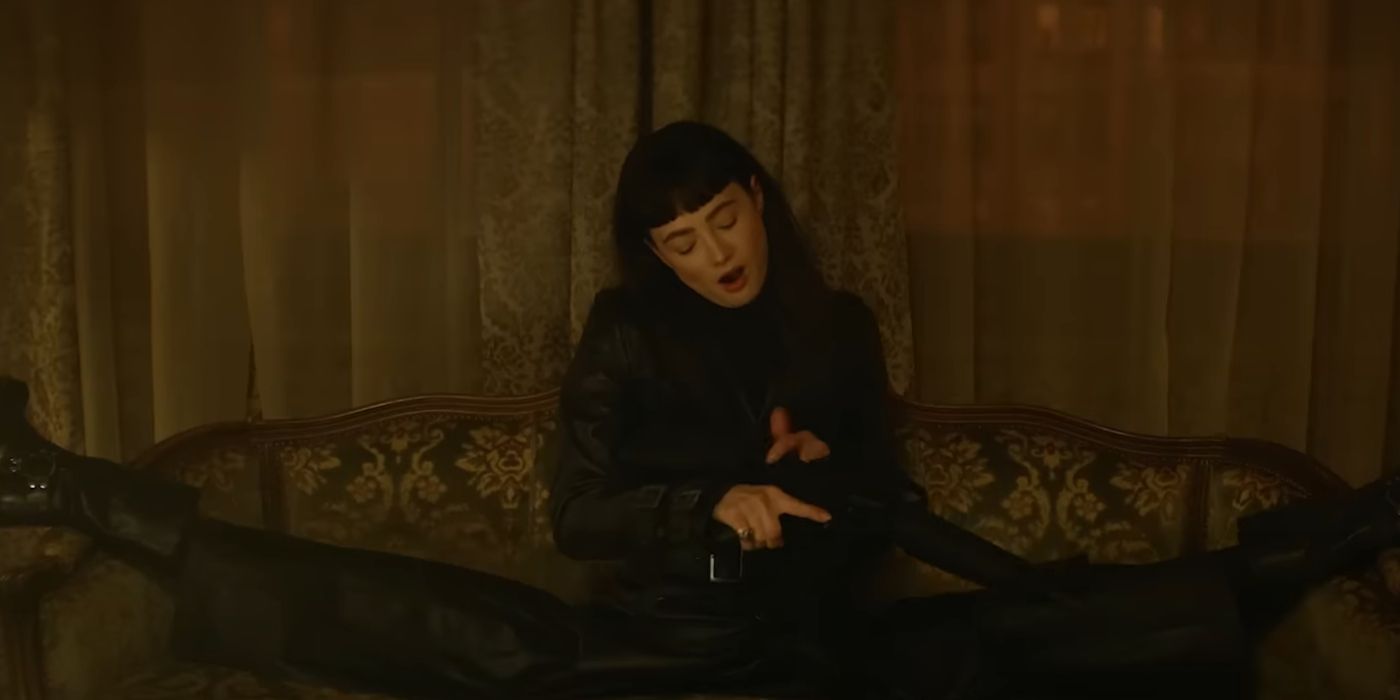
Definitely. And then we get to meet a few other assassins in this final episode. I think my favorite is the guy with the machetes, because that was just hilarious.
Albert Hughes: I thought you were going to bring up the old man with the sniper.
That was great, but just the dude pops up with the machetes and the mask, I was like, “Who is this? I need more of him.”
Albert Hughes: Well, what’s funny about that character is we knew that he was going to be shot by Winston, be shot at, and he would keep coming forward. So I’m like, “Hey, this guy, we have to explain this away because we shot the introduction of him snorting you know what,” and I go, “He has to be doing blow because you can’t explain this one away.”
I love that intro so much. Can you talk about developing these characters that we really only see very briefly, but make such a big impact?
Albert Hughes: Well, it was just about getting with the costume department, hair and makeup, Larnell, the stunt coordinator, director, and Kirk. And we have to make them interesting so that they sink in briefly because they’re not around for full on scenes. You do establish some of them, and none are more so established than Hansel and Gretel.
When you have this hotel full of loony assassins, take advantage, sometimes you can go too far with those things, but this world kind of eats up wild and wacky and you just hope they kind of make an impression because it’s also the 70s, so you have to be careful. You don’t want a lot of people running around in bell-bottoms and people laughing at it for no reason.
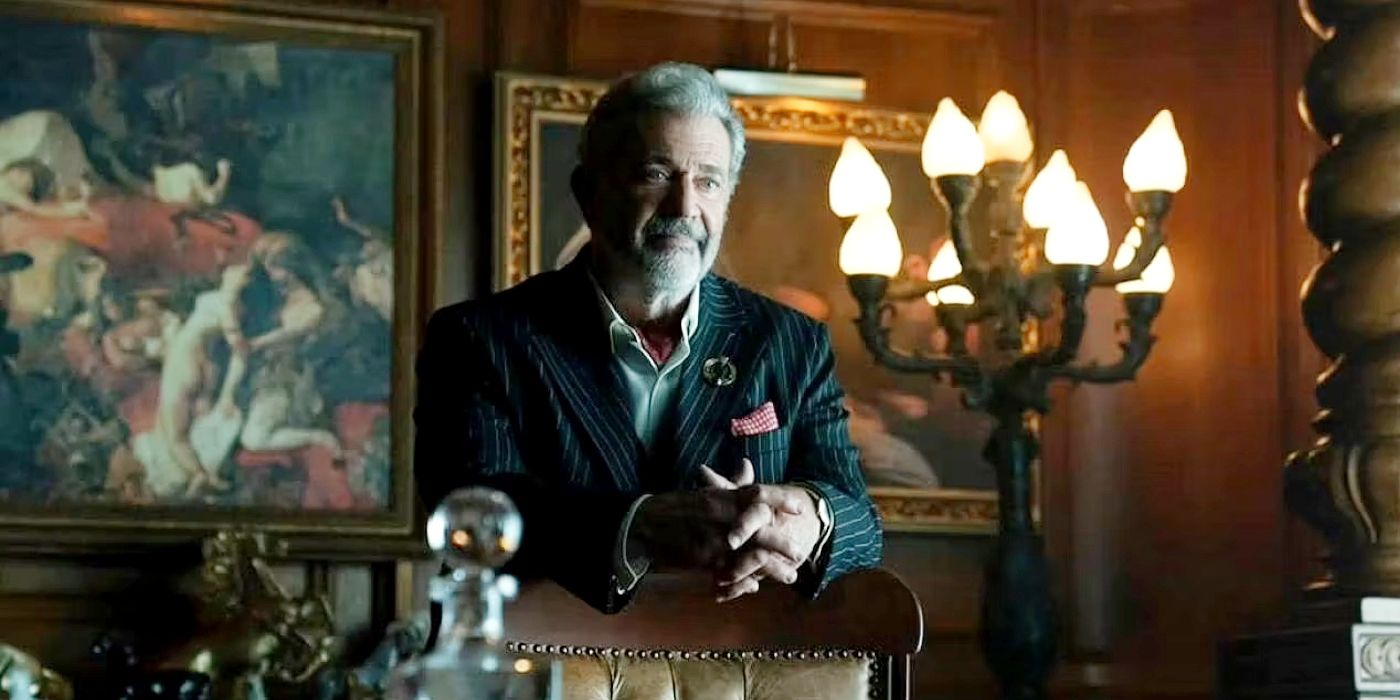
Can you talk about interweaving KD’s story with the other people who are hunting for Cormac?
Albert Hughes: I mean the KD story is interesting because she’s actually the heart of the story in a way, if you really look at it. And she’s the catalyst, her background’s the catalyst for all this. And low key, she is actually the protagonist of the whole story. She’s the one that’s not an assassin, she’s not a part of the John Wick world in a way or universe. She has her own personal reasons for why she wants to find something.
And by the end, and here’s the thing that most people overlook that’s in the third episode, it’s women who take care of the business. It’s Dominican, Puerto Rican, KD, it’s Black women, Jess Allain, who plays Lou, it’s Kate, who plays Yen, a Vietnamese woman. They’re the ones that take care of all the business. Okay? And you have this Dominican-Puerto Rican woman, Mishel Prada, who takes care of the ultimate business, and that’s the arc of her story.
And what I find so fascinating about people’s reaction to watching the shows is that a lot of that goes over their head, what’s really taking place there, the so-called subtext or sub-story is actually the story of the real protagonist. Winston is very clever, he never gets his hands dirty, very rarely. You do see him get his hands dirty at the very end, but he’s more of a chessboard piece mover or however you say that. He’s a chess player.
And so all these pieces are in place and he’s kind of the clever guy that’s, even in the film series, he’s sitting in the vault having a whiskey while all that violence is going on. That’s Winston. While everybody else is getting their hands dirty, he’s sitting back having a drink.
Definitely. I love that it was women who were the badasses of the show. That was so much fun for me.
Albert Hughes: Oh, me too. My mom would be proud. Oh, she is, I think. She’s still alive.
I love that. And then what has been the most surprising part of this process for you?
Albert Hughes: The fun. I think the fun I had making it and the surprise of how great the crew were, particularly the Hungarian crew, how ambitious they were, how ambitious and goal oriented the actors were, and how much fun we had every day. Making a project, a movie or television, you go through manic emotions every day, ups and downs, failure, triumph, all in the same day multiple times.
But the surprise of showing up every day, and every single day being excited about going to work. That hasn’t happened in the past.
And I think it’s because I didn’t have the social worries of being true to slavery or inner city violence or whatever, the more serious issues I’ve dealt with in the past in my movies with my brother, I didn’t have that. And then also being lucky enough to be surrounded by very ambitious crew and actors who, at the same time, were hitting on all cylinders.
About The Continental
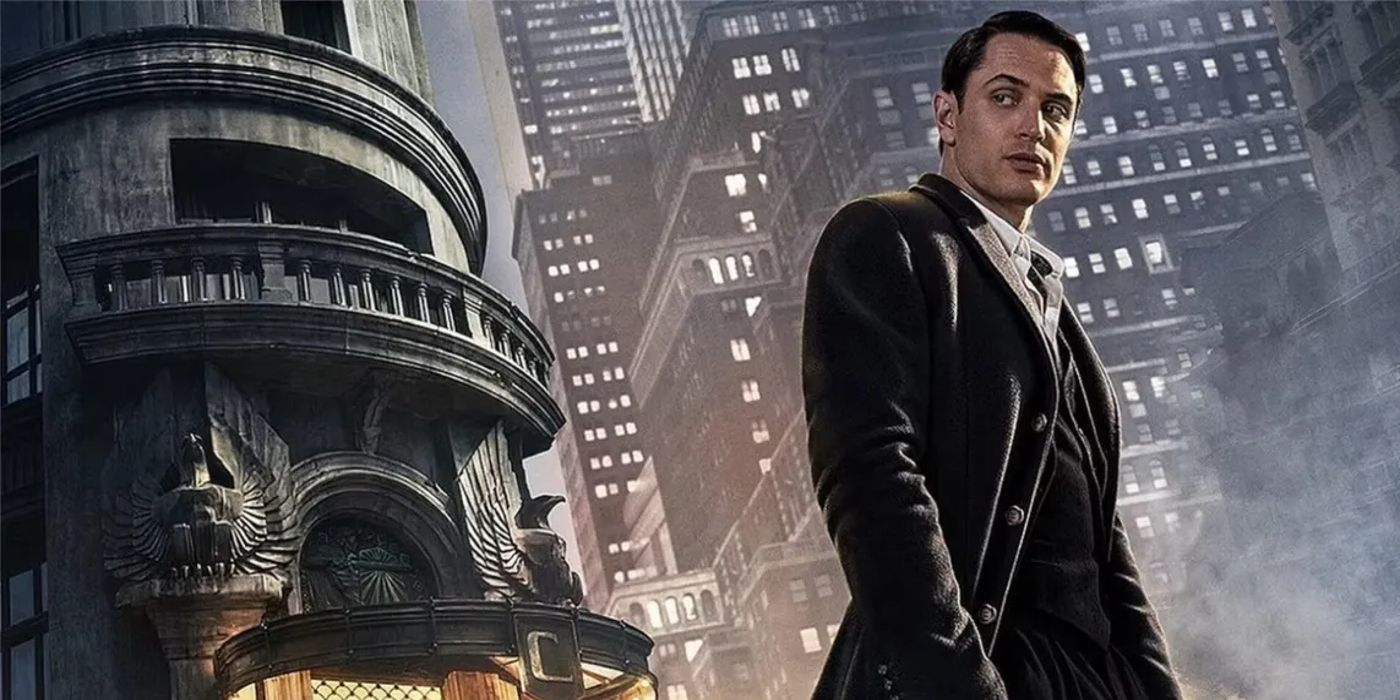
The Continental explores the origin behind the iconic hotel-for-assassins centerpiece of the John Wick universe through the eyes and actions of a young Winston Scott, as he’s dragged into the hell-scape of 1970’s New York City to face a past he thought he’d left behind.
Check out our other The Continental interviews:
- Director Charlotte Brändström
- Sound Designer Luke Gibleon
All three episodes of The Continental are available now on Peacock.




